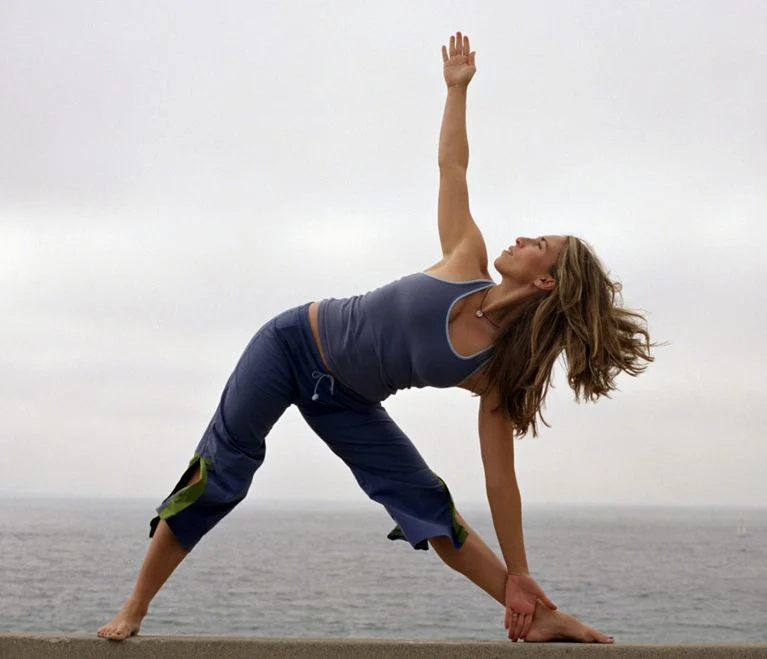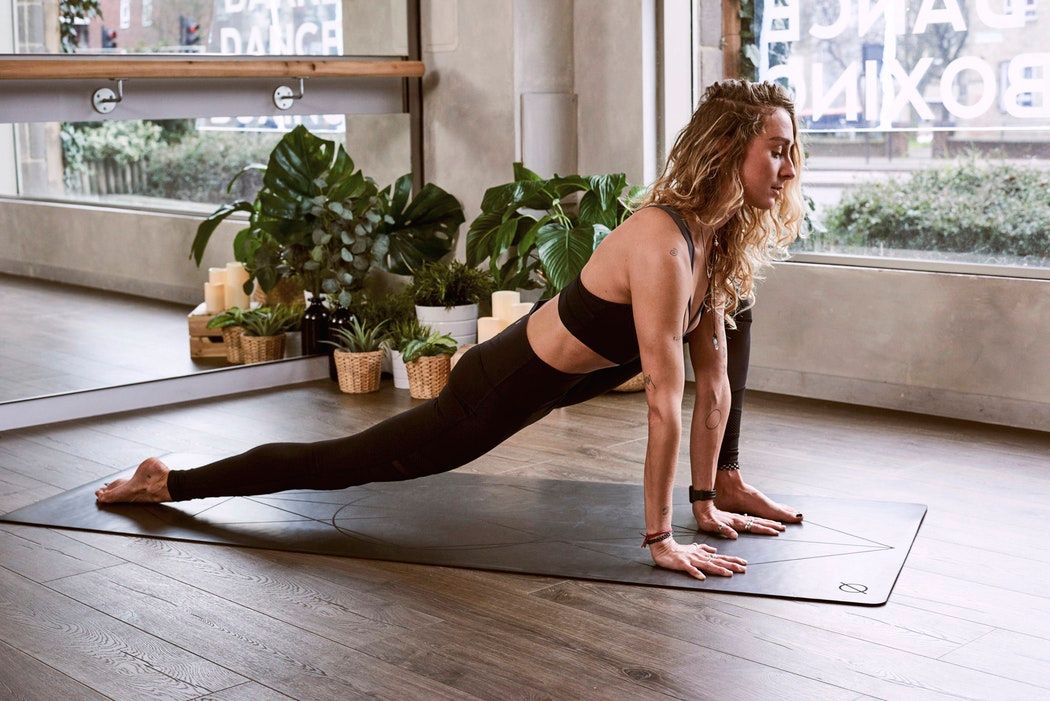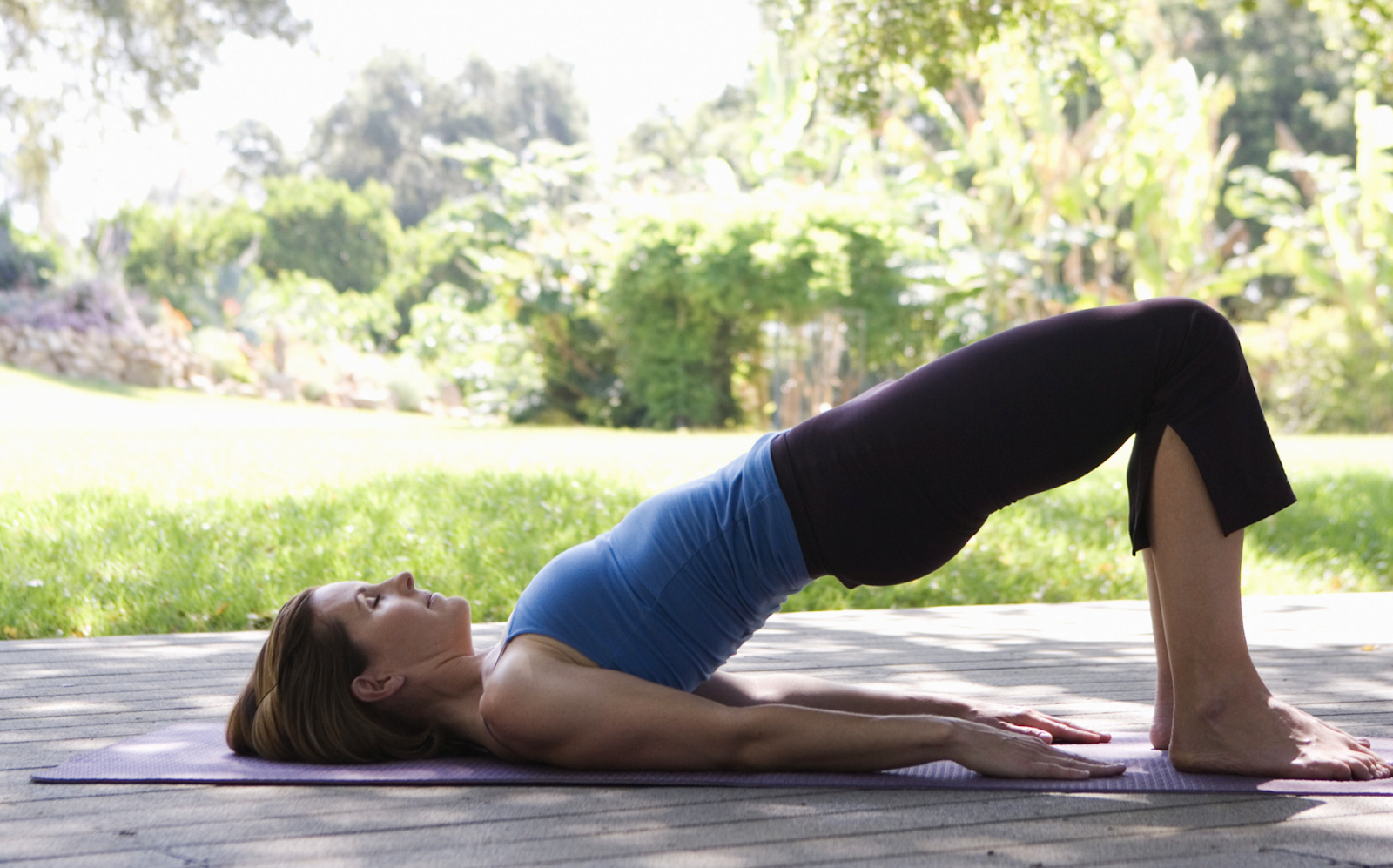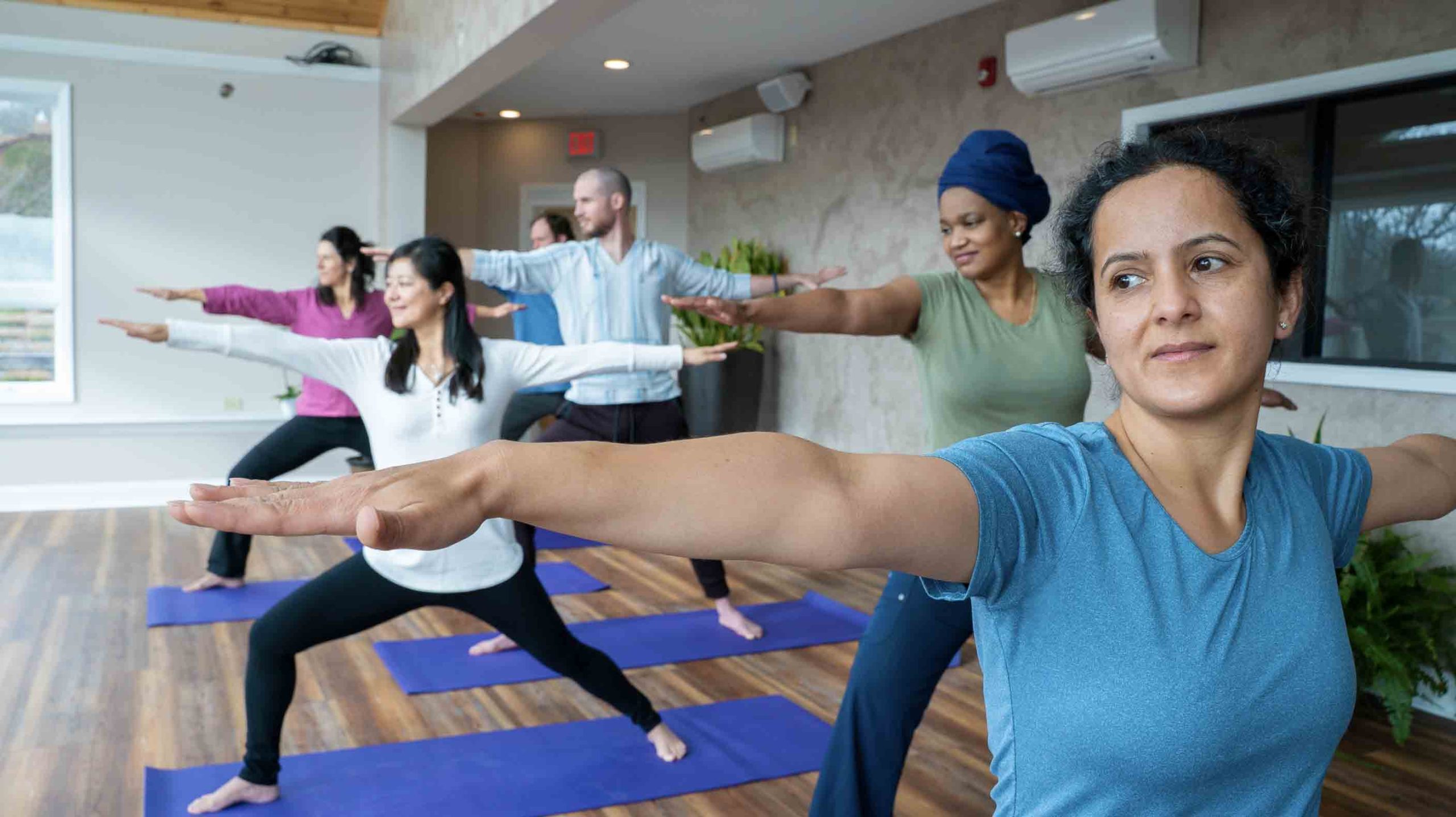In our fast-paced, high-stress world, anxiety has become a prevalent mental health issue. While medication and therapy provide treatment options, many individuals seek more natural remedies like yoga. This ancient mind-body practice has gained popularity for its purported anxiety-reducing benefits.
Today we will examine the scientific evidence behind yoga’s efficacy as a complementary approach for anxiety management. We’ll explore the specific yoga techniques, from poses to meditation, that may help counter anxiety’s physical and psychological symptoms.

Contents
Can Yoga Help With Anxiety?
Yes, yoga can be a helpful tool in managing anxiety. Here’s why:
1. Stress Reduction
Yoga incorporates physical postures (asanas), breathing exercises (pranayama), meditation, and relaxation techniques. These elements work together to calm the nervous system and promote relaxation, counteracting the fight-or-flight response associated with anxiety.
2. Mind-Body Connection
Yoga emphasizes the connection between the mind and body. By focusing on your breath and movements during postures, you can cultivate a sense of present-moment awareness and quiet your mind chatter, reducing anxiety-provoking thoughts.
3. Improved Mood
Yoga can elevate mood by promoting the release of endorphins, hormones known for their mood-boosting effects. Regular practice can lead to a more positive outlook and better emotional regulation.

4. Sleep Enhancement
Anxiety can disrupt sleep, and yoga can improve sleep quality. The relaxation techniques and stress reduction benefits of yoga can contribute to better sleep hygiene, allowing you to feel more rested and manage anxiety more effectively.
Why Use Yoga as an Adjunct Treatment for Anxiety?
Here’s why yoga is a compelling choice as an adjunct treatment for anxiety:
Multi-faceted Approach: Anxiety can manifest in physical and mental symptoms. Yoga addresses both aspects through:
- Physical postures (asanas): Gentle stretching and mindful movements improve flexibility, reduce muscle tension (a common anxiety symptom), and promote relaxation.
- Breathing exercises (pranayama): Focused breathing techniques slow down the heart rate, activate the parasympathetic nervous system (the body’s relaxation response), and help manage anxious thoughts.
- Meditation: Meditation cultivates present-moment awareness and reduces rumination on negative thoughts, which can fuel anxiety.
- Relaxation techniques: Yoga incorporates practices like progressive muscle relaxation, helping release tension and promoting calmness.
Complementary to Other Therapies: Yoga can effectively complement traditional treatments like cognitive-behavioral therapy (CBT) for anxiety. While CBT helps you identify and challenge negative thought patterns, yoga provides tools to manage the physical and emotional responses triggered by those thoughts.
Accessibility and Low Risk: Yoga is generally safe for most people and can be modified to suit different fitness levels. It requires minimal equipment and can be practiced at home, making it an accessible and convenient option.

Focus on Self-Management: Yoga empowers you with tools and techniques to manage your anxiety independently. You learn practices you can integrate into your daily routine for ongoing stress reduction and anxiety control.
Improved Overall Well-being: The benefits of yoga extend beyond anxiety management. Regular practice can enhance sleep quality, increase energy levels, and promote feelings of well-being, all of which contribute to a better ability to cope with anxiety.
Finding the Right Fit: There are various yoga styles, some more physically demanding than others. You can explore options like Hatha yoga, restorative yoga, or yoga nidra, which specifically emphasize relaxation and stress reduction.
9 Best Yoga Poses For Anxiety:
Here are nine yoga poses that can help alleviate anxiety:
1. Child’s Pose (Balasana): This calming pose helps to release tension in the back, shoulders, and chest, while also promoting relaxation.
2. Cat-Cow Pose (Marjaryasana-Bitilasana): This gentle flow between arching and rounding the back helps to release tension in the spine and promote flexibility.
3. Downward-Facing Dog (Adho Mukha Svanasana): This inversion pose helps to stretch the entire body, relieving tension and stress while also calming the mind.
4. Legs-Up-The-Wall Pose (Viparita Karani): This restorative pose allows for gentle inversion and promotes relaxation by encouraging blood flow and reducing swelling in the legs and feet.
5. Seated Forward Bend (Paschimottanasana): This seated stretch helps to calm the mind and release tension in the back, hamstrings, and hips, promoting relaxation and stress relief.

6. Bridge Pose (Setu Bandhasana): This gentle backbend stretches the chest, neck, and spine, helping to alleviate anxiety by promoting relaxation and reducing tension in the body.
7. Standing Forward Bend (Uttanasana): This standing stretch helps to release tension in the back, hamstrings, and calves, while also calming the mind and promoting relaxation.
8. Corpse Pose (Savasana): This final relaxation pose allows for complete surrender and relaxation, promoting a sense of calm and inner peace.
9. Alternate Nostril Breathing (Nadi Shodhana Pranayama): This breathing technique helps to balance the nervous system, calm the mind, and reduce anxiety by promoting relaxation and clarity of thought.
Frequently Asked Questions
1. Can yoga help alleviate symptoms of anxiety?
Yes, yoga can aid in alleviating anxiety symptoms. The article emphasizes that it’s not merely about the specific yoga poses, but how they’re performed, the environment, and your mindset.
2. Which style of yoga is best for anxiety?
The ideal yoga style for anxiety can vary from person to person. Hatha yoga, which is gentle, could be suitable for beginners, while the Satyananda style is preferable for relaxation, and Power yoga for a more intense workout.
3. Does yoga bring changes to the brain?
Absolutely! Practicing yoga facilitates brain cells to develop new connections and brings changes in brain structure and function leading to improved cognitive skills such as learning, memory, attention, awareness, thought, and language.
4. How often should yoga be practiced for mental health?
For overall health and wellbeing, practicing yoga three to five times a week can be beneficial. It could include a mix of styles to ensure a balanced approach that focuses on physical fitness and mental wellbeing.
5. Can Yoga make you calmer?
Yes, yoga promotes relaxation, which is a natural way to reduce stress. It benefits our body, mind, and breathing which are often affected by stress.
6. How can yoga help with panic attacks?
Yoga, along with cognitive reframing, deep breathing exercises, regular exercise, and adequate good-quality sleep can be a natural way to manage panic attacks. Limiting intake of caffeine, stimulants, and alcohol also helps.

Hello, I’m Ravindra. Over the years, I’ve immersed myself deeply into the world of fitness and health, transforming both my body and mind. Writing has allowed me to share my journey, insights, and expertise with those just starting out and seasoned fitness enthusiasts alike. Beyond just routines and diets, I believe in inspiring others to adopt a holistic approach to well-being.
